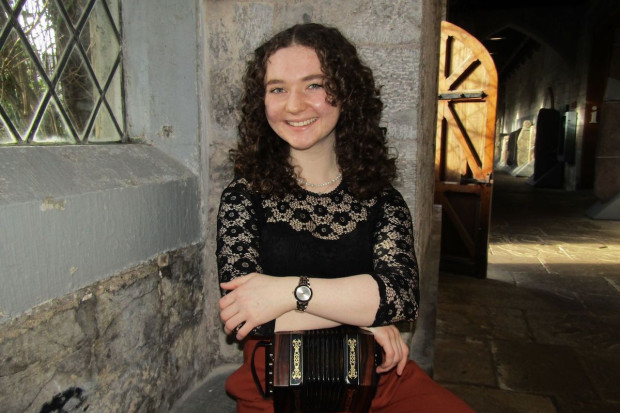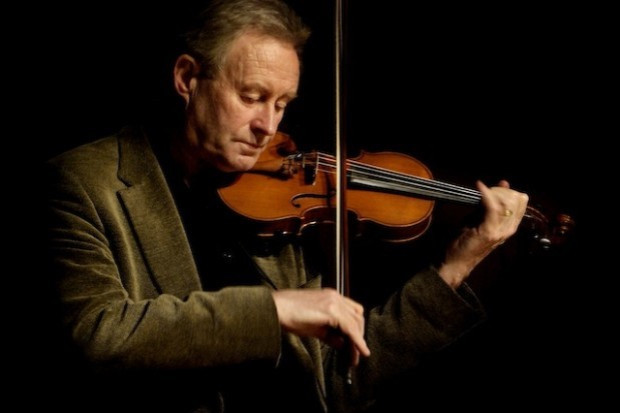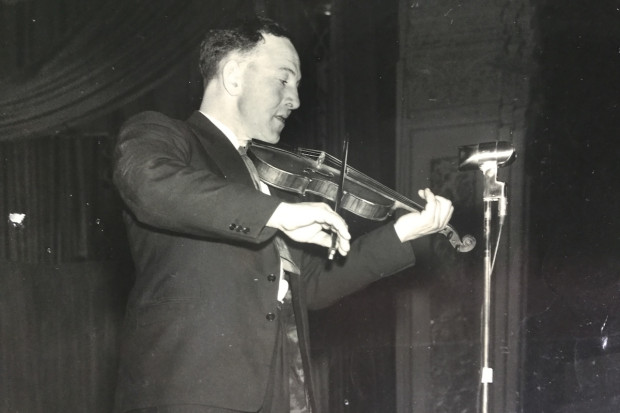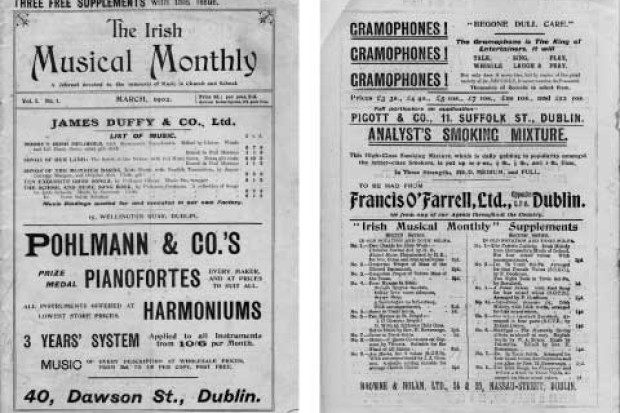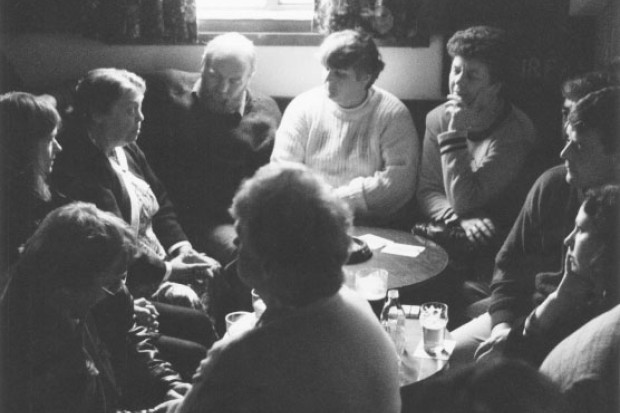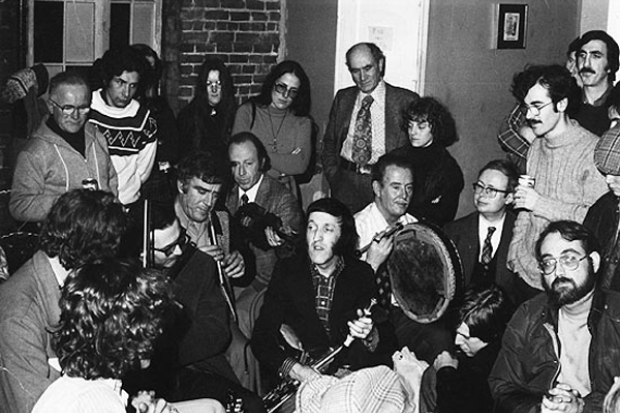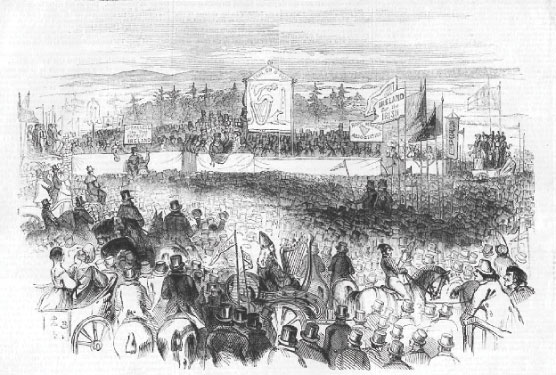
Monster Repeal Meeting
The image of a harp has been used irregularly as a symbol of Ireland on armorials and flags since at least the 13th century, in Ireland and abroad, and on Irish coinage from the 16th century to the present day. In the 17th century it began to take on a particular potency as a emblem of different kinds of national thinking, beginning in the period of the Catholic Confederacy of the 1640s and continuing among Irish regiments on the Continent. It was a feature of the ensigns of the Volunteer movement of the 1780s and especially of the United Irishmen in the 1790s: ‘It is new strung and shall be heard’. O’Connell made particular use of the Irish harp in his 1840s mass movement to repeal the Act of Union of 1801 and win legislative independence from the Westminster parliament. He had a ‘bardic’ harper play before him in his triumphal chariot (seen in the foreground) and he and his supporters (such as the Rope Makers Association here) employed the harp, with the round tower and the Irish wolfhound, as symbols. In terms of practical music making, however, he had the small ensembles pictured here with the military instruments of kettledrums, trumpets and serpents, presumably for the playing of fanfares and national airs.
Courtesy Irish Traditional Music Archive
Published on 1 November 2008










